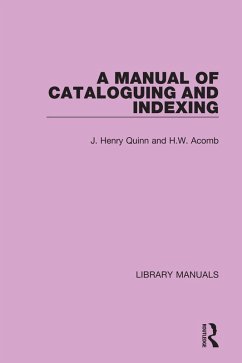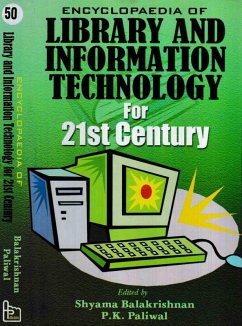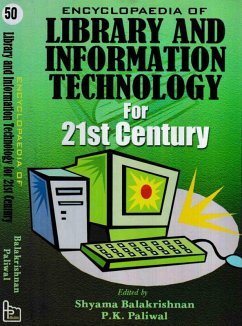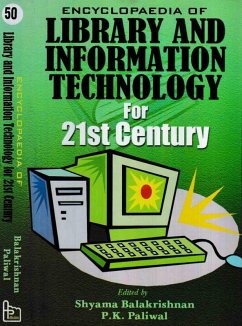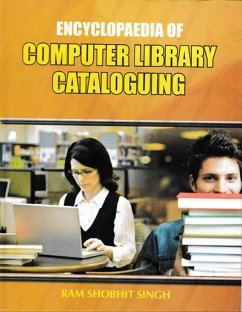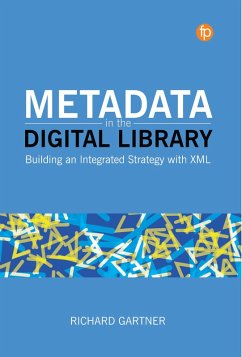
Manual of Library Cataloguing (eBook, ePUB)
Versandkostenfrei!
Sofort per Download lieferbar
1,99 €
inkl. MwSt.
Weitere Ausgaben:

PAYBACK Punkte
0 °P sammeln!
In "Manual of Library Cataloguing," John Henry Quinn presents a comprehensive and systematic approach to the organization and classification of library materials. The book marries theoretical frameworks with practical techniques, elucidating essential principles of cataloguing that have guided librarianship since its inception. With a clear and methodical literary style, Quinn addresses the intricacies of bibliographic control, the complexities of classification systems, and the evolving landscape of library science during his time, situating his work within the broader context of early 20th-c...
In "Manual of Library Cataloguing," John Henry Quinn presents a comprehensive and systematic approach to the organization and classification of library materials. The book marries theoretical frameworks with practical techniques, elucidating essential principles of cataloguing that have guided librarianship since its inception. With a clear and methodical literary style, Quinn addresses the intricacies of bibliographic control, the complexities of classification systems, and the evolving landscape of library science during his time, situating his work within the broader context of early 20th-century educational reform and information dissemination. John Henry Quinn was a prominent figure in library science, emerging from a tradition steeped in a commitment to accessibility and social responsibility in education. His experiences as a librarian and educator inspired him to address the pedagogical shortcomings in cataloguing literature, leading to a pivotal contribution that bridges theory and practice. His keen understanding of the importance of systematic cataloguing in fostering information retrieval reflects his dedication to improving the efficiency of libraries as community resources. This book is an essential read for librarians, educators, and students of library science, offering timeless insights into the foundational methods of cataloguing. Quinn's meticulous guidance illuminates the path for contemporary practitioners aiming to enhance their cataloguing skills, ensuring that valuable resources are effectively organized and accessible to all. Engage with this critical text to deepen your understanding of library science and its profound impact on information management.
Dieser Download kann aus rechtlichen Gründen nur mit Rechnungsadresse in A, B, BG, CY, CZ, D, DK, EW, FIN, F, GR, H, IRL, I, LT, L, LR, M, NL, PL, P, R, S, SLO, SK ausgeliefert werden.




